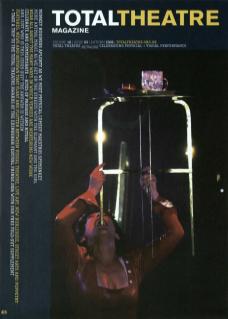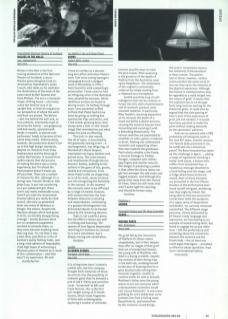I have to confess to a decade-long love affair with Alain Platel's work. Ever since seeing teenagers rampaging around a dodgem track in Bernadetje in 1996, I have found his work compellingly provocative. I have come to find an intriguing voice in the dystopian sets, peopled by outcasts, whose rebellious actions are fused to driving scores. So halfway through VSPRS I was somewhat miffed to think that Platel had let me down by giving us nothing but spectacular flips and twists, and a few crowd-pleasing duos; then along came a kick-in-the-mouth image that reminded me just what makes his work so affecting.
This kick-in-the-mouth, like all of VSPRS, is nourished by the gutturally soaring score – rearrangement, nay refiguring of Monteverdi's Maria Vespers, translated into Gypsy rhythms and pained arias. This score echoes and reverberates through the ten dancers' bodies, bubbling to the surface in the guise of tics, grunts, shakes and convulsions. From these Platel crafts an image that, as in all his work, serves to shock you into recognising the humanity in the outcast. In this moment the outcasts seem to be afflicted by a range of mental illnesses, with actions that blur the lines between obsessive scratching and masturbation, culminating in a gradual disintegration into dislocated objects to be hauled about by the remaining dancers.
VSPRS is not a perfect piece, but the effect it leaves you with is striking and haunting. The spasms of lone figures desperately searching for someone to connect to is not a new theme, but a deeply moving one nonetheless.

